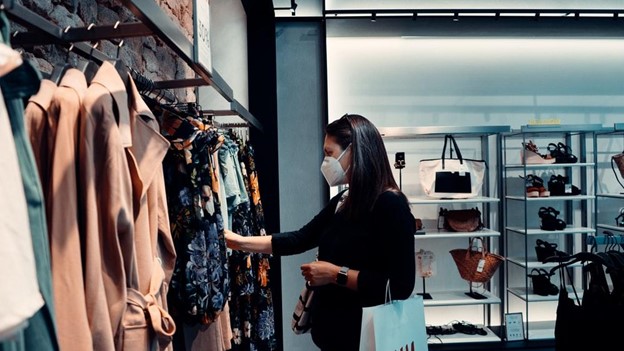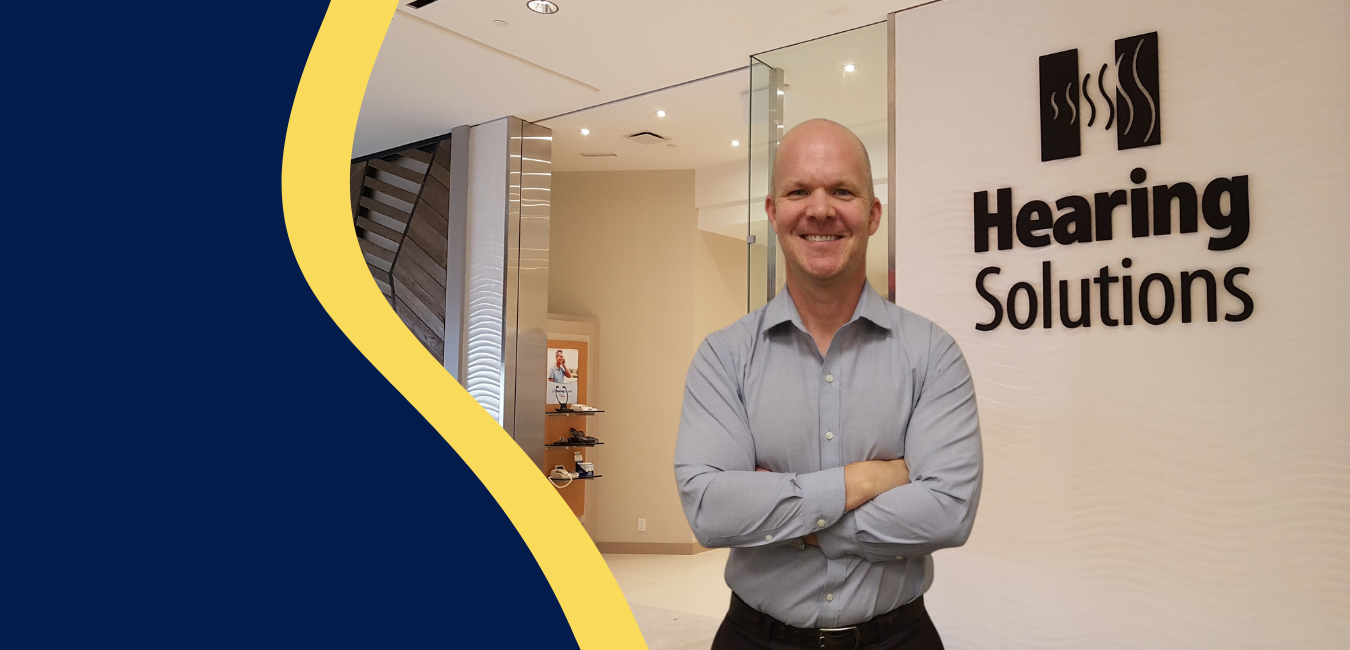Hearing difficulties during the pandemic: a canary in the coal mine
Prior to the pandemic, many patients would arrive at our clinics indicating that they “could hear just fine if only their husband/wife would speak a little clearer.” That “you can’t expect someone to hear from another room or over the racket of doing the dishes.” Across our 27 clinics, this is a familiar tale. I really can’t fault individuals for these observations because the way hearing loss presents itself is quite different from what we might expect. Most people would assume that a decrease in hearing is like having the volume of the world turned down. Yet most often what people actually experience is a loss of clarity or difficulty in background noise. It happens this way as our hearing usually diminishes in certain pitches more than others. The result is that we don’t typically have a problem hearing that someone is speaking, but rather hearing precisely what they said. As such, the subtle clues that tip us off that a hearing difficulty could be developing are often dismissed. “They record TV programs with too many sound effects and too much music, it’s not as clear as they used to record them” or any other number of responses that suggest “it’s not me.” None of this is new, as Ontario’s largest independent chain of hearing clinics we’ve heard these reports many times. What is new, however, is that over the past few months our world has changed. The situations we find ourselves in have changed as well and with that the subtle clues that indicate a hearing check might be in order.
Communication
During the pandemic, we’ve seen a shift in normal communication which has perhaps presented us with a new opportunity. Mask wearing is the new norm. Plexiglas barriers are found in almost every store we go to. Communicating at an increased distance is an expectation. Using technology like phone calls and video chats are the new norm. These are all new areas where we might experience communication breakdown. We should however be careful before we dismiss these situations. Before we say “speaking with masks on makes it so hard to hear” or “I can’t hear anything the teller is saying behind that thing” we should take a moment to consider that this might be the canary in the coal mine.

Photo credit: Fausto Marqués
While it’s undoubtedly true that masks, barriers, and distance make it harder for anyone to communicate, they will make it the hardest for those who have a subtle underlying issue. That is the reality for an estimated 8.2 million Canadians between the ages of 40 and 79. A recent 2019 study completed in conjunction with Statistics Canada indicated that 54% of adults between 40-79 experience some degree of high-frequency hearing loss. What’s more, an estimated 77% of those are suspected to have a loss and not even know it! So while it might be easy to say “it’s not me, it’s the mask” we might not realize that the mask is only part of the problem.
Steps to deal with hearing loss
Even with some pitches missing, especially the high frequencies, certain elements of speech like the “S” or “SH” sounds becoming harder to hear. We are able to find ways to cope. Speech is loaded with extra redundant information and so we start relying more heavily on things like our knowledge of the language, subject, or speaker to get by. Typically, we would also latch on to lip-reading cues, even if we were unaware that we were doing it. However, with the prevalence of mask-wearing, we may be unable to that in our current reality and so communication breaks down. If our hearing is normal, we might still have enough left over redundant information to go on but with decreased hearing, the mask might be the “straw that breaks the camel’s back” as they say.

Photo Credit: Arturo Rey
Many people will still tell themselves that they can “get by” and undoubtedly it might be possible for them to do that, find new ways to cope such as asking others to repeat, turning the volume up or relying on communication partners to compensate. However, most people don’t realize they are paying an additional unseen price at the brain level. Ultimately, we don’t hear with our ears, they are simply delivery systems for information to our brain. Our brain is doing all the work and when it’s robbed of information, it’s the one that has to pick up the slack. This is why I describe this scenario as a canary in the coal mine, because even if most people are willing to put off the idea of dealing with a hearing problem, paying for it with their brain sounds a lot less appealing.
When our brain compensates for missing information from our ears it has to work even harder. Many recent studies have shown that listening with a hearing loss increases something called “cognitive load” leaving fewer resources available for the brain and its other tasks. This is likely one of the reasons why hearing loss is associated with a number of other issues such as the increased risk of falling, hospitalization, accelerated cognitive decline, and dementia. Worse yet, studies have also shown that our brain will change when certain areas of the brain are deprived of information. This is called neuroplasticity and studies have shown that prolonged decreased hearing can result in areas that should light up for hearing no longer do and may light up during other tasks meaning the brain has taken those areas over for other tasks.
Summary
Fortunately, it’s not all bleak. Studies have also shown that using hearing aids can greatly reduce the risk of cognitive decline to that of normal-hearing peers. The Lancet, one of the oldest and most well known medical journals, published an extensive article on dementia which indicated that hearing loss was the number one modifiable risk factor for dementia. So in my eyes, the silver lining of this pandemic is that the shift in communication needs might tip more people off that something is going on with their hearing and if that results in more people getting their hearing checked and seeking treatment earlier, then that at least is a good thing! If you take nothing else away from this article it’s that if you are having trouble hearing, take our 5 min free online hearing test today.









